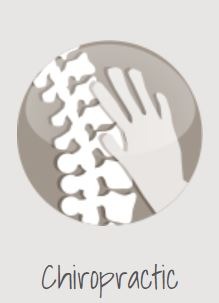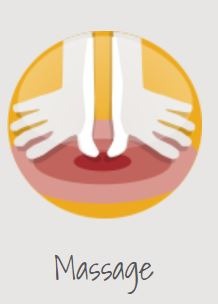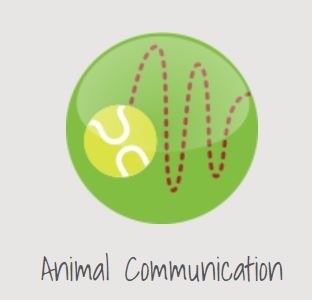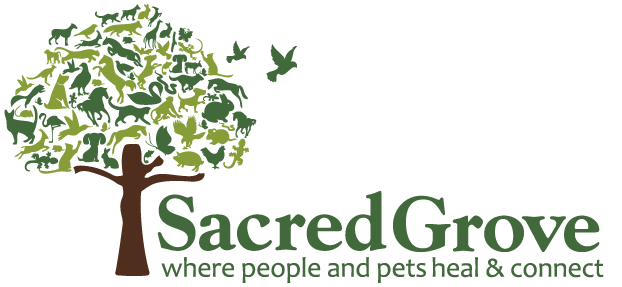My interview with Dr. Kocen, DVM, CVA, provides a wealth of knowledge about what alternative veterinary services available at the Veterinary Holistic Center (VHC). Although I am familiar with these modalities as I have “office hours” at VHC, I wanted to learn more – which might be most useful for different health issues we see in our animals.
What an enlightening interview! Dr. Kocen is a wealth of information and experience.
Below are the highlights. We cover acupuncture, herbal medicine, vaccinosis, chiropractic, rehab, massage, and animal communication. You’re going to want to download this 12-page transcript. It includes all the information you heard on the video plus a table of contents for easier reading!
When to consider alternative therapies
- You’ve gone to your regular veterinarian, and the therapies no longer work.
- Your animals don’t respond to conventional medicine.
- You use alternative therapies and wonder if they’d work for your animals.
- Your pets are on regular medicines. You’d like to integrate alternative therapies into the approach to see if there are greater improvements in health.
 Acupuncture
Acupuncture
Mobility Issues
Acupuncture works well for mobility – 80% or more of acupuncture patients show improvements. These are discernible improvements. Clients notice, the spouse notices, the neighbors notice.
A Client Story: Older beagle
We saw an older beagle, a little bit overweight. Weak in the hind end, kind of stiff, slow getting up, certainly wasn’t running around and playing, slipping on the floor.
This is not uncommon with dogs as they get older. There’s less nerve flow to the back legs, maybe some arthritis, some muscle loss, so it manifests as hind end weakness.
The owner wonders, Is it time? Maybe they’re so uncomfortable it’s time to let them go.
The body’s always trying to get better and compensate, so they shift their weight forward and their backs get tight. That causes back end weakness, which makes the back even tighter.
Acupuncture’s main result is muscle relaxation, so we started acupuncture
At the third visit: “I think he’s moving a little bit smoother. He’s getting up and down a little bit more often.” Fourth visit: “He’s trying to go up the stairs. He’s trying to get on the couch. He’s kind of moving a little more outside.”
Next visit, “He’s running around the backyard.”
No chemical is used, so no metabolic problems, no need to worry about organ changes down the road. So really, he’s a great example. And fortunately, not an uncommon example, either.
In this case, acupuncture saved the person a tough decision. Plus, the dog’s doing great! How good is that?
Arthritis, Hip Dysplasia, Torn ACL
Many times, acupuncture helps those who have arthritis. Labs, Golden Retrievers and German Shepherds, may have some arthritis in their hips from hip dysplasia or just arthritis. Dogs that have had a torn ACL with or without surgery will have arthritis in their knees.
 Herbal Medicine & Homeopathy
Herbal Medicine & Homeopathy
Metabolic Diseases: Liver and Kidney Changes
Herbal medicines can also help with metabolic diseases such as liver and kidney changes either through exposure to toxins or age-related diseases. As dogs and cats age, kidney disease is not an uncommon thing.
Chronic Problems: Skin, Digestion, Respiration
These are all longer-term inflammatory processes. Anti-inflammatory medicines may or may not control inflammation. And if they do, they have their side effects. If you try to get off the drugs, the problems come back because they never went away. You were controlling the inflammation.
Herbal medicines stimulate the body’s immune system to try to decrease that inflammation. They’re safer for the body because it doesn’t hurt the organ. The body doesn’t see the medicines as a toxin as it would a pharmaceutical.
Long-term use is OK
Herbs can be used for longer-term. Older animals’ immune systems get a bit weaker. So there are immune tonics which enhance immune function.
Intervening earlier – acupuncture and herbals
Hypothetically, if we could intervene sooner, we could nip some of these things in the bud. If you don’t start until you’re older, there’s a limit as to how much better you can get and the interval between visits.
Vaccinosis (an adverse reaction to vaccines)
In the holistic world, my teachers have covered this topic for a very long time. Now the conventional perspective is reviewing it, too.
It’s not so much that vaccines are bad. The problem is over-vaccinating. My usual joke to clients is I got my puppy shots. I don’t have to keep getting boosted. (Maribeth side comment: Wow, that’s right! People don’t have to go back to update mumps/measles/rubella vaccine shots!)
Manufacturers have made some good vaccines. When you give them to the puppy, they have long-term immunity for most viral diseases (in dogs – distemper and parvo and rabies; in cats – feline distemper and rabies).
Then they come back a year later for a “booster.” Again, the immune system fights the vaccine. A vaccine is an infection. You’re creating inflammation. You’re tying up immune capacity.
By year three, four, five, you’ve got a non-stop infection going, man-made. This is an insidious problem. It’s not a reaction to a vaccine within a week of giving it or a day later or even a month later. It’s the cumulative effects of over-vaccination.
Titer tests as an alternative
The titer test measures the body’s immune status to that disease. If one draws a blood sample on a dog to check the parvo and distemper titer and it’s positive, you don’t need a booster. It means if you’re exposed to this disease in real life, you can fight it off.
This is being recognized at the veterinary schools, and they’re starting to appreciate this now that we have testing to check the status.
State requirements
The only requirement in most states is the rabies vaccine. Distemper and parvo and these other vaccines are not required by anybody. A clinic may strongly suggest it. A bordering kennel may require it.
Have a titer done. If your dog’s blood test shows that they have immunity, you know your dog has immunity; not just that he got a shot, but he actually has immunity, it worked.
Over-vaccination is related to disease leading to “vaccinosis,” which manifests as chronic inflammatory problems, skin problems, respiratory problems, urinary problems.
 Chiropractic
Chiropractic
Maribeth: Chiropractic and acupuncture are totally different. And yet, they seem to work on similar issues. Can you talk about how chiropractic might be useful?
Agility dogs, very active dogs, hikers
Chiropractic shines when used for agility dogs, middle age and younger dogs that are very active, maybe because the people themselves are active. Even going to the dog park a lot, a lot of jumping, turning, twisting. They’re relatively healthy.
Chiropractors locate the tension, do adjustments as necessary to take tension off the muscles and the nerves, which then improves function.
 Massage therapy
Massage therapy
Massage therapy helps a lot of older, even middle-aged animals. The real advantage is what the massage therapist can teach the person.
Then they go home and massage the animal themselves.
 Rehab
Rehab
If they’re no longer responding well to massage, maybe something shifted. Then you might see rehab specialists, which are called physical therapists in humans. A lot of middle-aged and older dogs benefit. Rehab focuses on exercises to strengthen core muscles.
Again, they show you exercises and homework to do. These are mostly supportive exercises. You don’t need to keep coming back.
Post-operative
Use rehab post-operatively to get back to fully functional.
Underwater treadmill
Conditioning, strengthening
This is for dogs with mobility problems with the rehab specialist directing the therapy. The result is two-fold – conditioning and strengthening. You can walk them for that result. But [in real life] you’ve got to walk a long time, find hills, and boost their strength.
Imagine a plexiglass chamber, eight-feet long and three-feet wide. Dogs walk inside, we turn on the water, which fills up from the bottom, and then we turn on the treadmill. Now the dog is walking, but they’re pushing against the water.
Overweight or older dogs
Some dogs can’t walk far, because they’re overweight or older and weaker. We adjust the height of the water to provide a little bit of buoyancy so it takes off some of their weight. Then turn on the treadmill. So now they still have to walk. But they don’t have to do all the work.
Knee Surgery
After knee surgery, the surgeon’s going to tell you to get rehab. Some of it is stretching and walking. But what if you can get them into the water? With a little more they are not as heavy. And yet, they’re pushing against the water, so you get the resistance work, too.
 Animal Communication (from Maribeth)
Animal Communication (from Maribeth)
Animal communication provides a telepathic connection to an animal to clarify what emotional or physical issues might be getting in the way of better health. Emotional issues can be addressed in the session.
Through a medical intuition body scan, information is received about how the animal is feeling physically and where weaknesses are found in the body. This provides the veterinarian with additional, useful information or confirms what the vet already knows. Pain levels can be assessed from the animal’s viewpoint.
Finally, people can find out from their animal if they are ready to pass on and if so, have an intimate conversation with the pet before they pass. They may discover that their pet has some final wishes.
A Client Story: End of life decision
This dog had numerous physical issues and had lost some clarity in his thinking. He had been with his person for most of her adult life and so it was an extremely difficult decision to let him go. In connecting with him, I sensed he was ready to go – after he had his party.
I shared that with his person and her boyfriend. They always have a huge birthday party for this dog. Parents, aunts, uncles, sisters, brothers, cousins — and their dogs — came So they planned a smaller, earlier birthday celebration. This information assisted both the dog and his person in the transition.
Animal-Specific Information
Bunnies
Acupuncture
Bunnies with back tension are relying on those back legs. They need to hop. When they walk, it rstrains on their back. Acupuncture has been very helpful.
Cats and acupuncture
Can you do acupuncture in cats? It depends on the cat. They’re cats, after all. You do it only if they allow it. Minimal restraint, gentle handling, very small needles help.
Acupuncture for Kidney Disease
As cats age, the most common thing we see is kidney disease. Interestingly, acupuncture can be very helpful. Part of the issue is the nerves to the kidney are being pinched because of the back tension. Nerves just don’t go to our muscles. They go to our organs.
So relaxing the back muscles improves back end strength, comfort and improves kidney function.
Veterinary Holistic Center
The Veterinary Holistic Center is in North Springfield (Virginia). We’re limited to holistic, alternative veterinary services, holistic medicine – predominately, acupuncture, Chinese herbal medicine, homeopathy. chiropractic, massage therapist and rehab. And of course, we have an animal communicator.
Our center is a rather large-sized facility in Northern Virginia. The clinic is in the front. There’s a 1,600 square-foot space in the back that our dog trainers use, but therapists also use it too.
Making appointments
Find information about our practitioners on our website. Some set their own appointments. For acupuncture and physical rehab, call the main number at (703) 662-4494.
 Dr. Kocen, DVM, CVA
Dr. Kocen, DVM, CVA
Dr. Kocen received his Doctorate of Veterinary Medicine degree from the University of Missouri College of Veterinary Medicine. He’s practiced in Northern Virginia ever since.
After practicing general small animal medicine for several years, he was certified in veterinary acupuncture in 1990. At the time, Dr. Kocen was the only veterinarian in Northern Virginia providing this service. Over the next few years, he trained in Chinese herbal medicine and homeopathy. The majority of his appointments were people coming for holistic medicine. Dr. Kocen joined Southpaw’s veterinary specialists in 1995, and he headed the Holistic Medicine Department for 19 years.
To increase the availability of alternative therapies for small animals, Dr. Kocen opened the Veterinary Holistic Center in Northern Springfield. We do not do conventional veterinary medicine. We see ourselves as an extension of conventional veterinary practices.


It is a pity that you are not on Long Island. We have an inordinate number of vets who are greedy and incompetent. One vet bragged that “it is hard to get into vet school, but easy to stay there.” It makes someone with a rescue cringe. I wrote the Wikupedia alternative protocol for uric acid stones in Dals awhile back, until an aged vet, pushing Science Diet, bumped me off.
Glad you are doing your own research, JH!